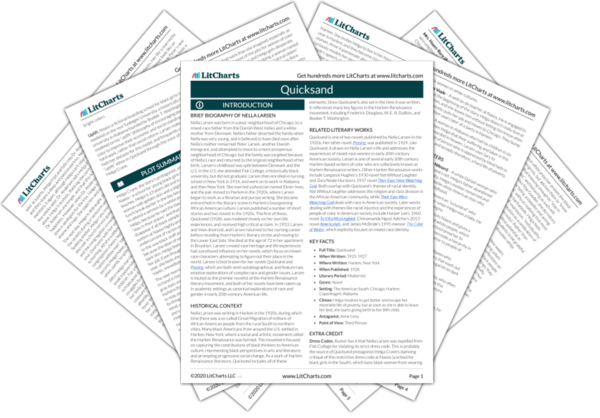Fru Dahl’s intentions for Helga are made explicit here: she has been dressing Helga up as exotic and voluptuous to attract a husband for Helga. Fru Dahl’s list of suitors shows that she is a social climber, interested in securing wealth and social status for Helga—and, by extension, for herself. Helga exposes her racial shame by talking about the bitterness of her childhood and her reluctance to marry. Once again, when romantic matters are at stake, Helga feels a mixture of shame, anger, and fear, which makes her push her feelings away.
